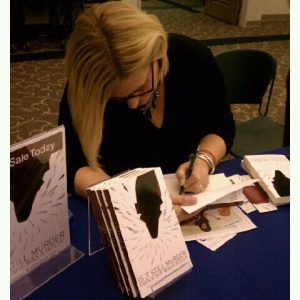Lately I’ve been fielding a lot of questions from folks who are thinking they’d like to write a book. They typically fall into these four basic categories: the I have an idea I’d like to share with the world group, the subject here often boils down to business advice – an idea, the I have a story to tell group, the subject is often one depicting how they or a loved one has overcome adversity, and/or self-help advice; then there are the I love to write and I’m pretty good so I should probably write a book folks, and for them the subject is often secondary; last and probably least we have the I want to write a book and give my business, or personal brand, a boost folks.

I want to write a book
Getting started varies depending on which group you fall into.
In the first, second and fourth groups, you know what you want to write about but are often intimated by the task of organizing your information and doing the actual writing. For these folks, I recommend that you begin by vetting your idea or story carefully, i.e. make sure no one has beat you to it. That doesn’t mean that the topic has never been addressed in a book before, but it is imperative that your particular slant on the topic is fresh and not in danger of getting you busted for plagiarism.
Once you’re sure that your topic is a fresh perspective, you need to determine the goal of your book; what are you hoping the reader will take away? And what skills, if any, will your book help readers begin to develop?
Once clear on the objectives of your book, it’s time to create an outline. This exercise will begin to formulate your process. It will help you organize your information and make it manageable for the reader. As you contemplate the various facets of your idea, or story, and how to articulate it you will also begin to identify the various ways in which your idea can be applied or your story can be relevant to your public. You might even have examples of how it could, or already has worked for others. As you think these things through, your outline will bulk up, enhancing and guiding your content. The more thorough your outline the more it will begin to parallel the structure and content of your book. This will take a lot of the intimidation away from the writing process and the age old question: I have a great idea, but how will I be able to fill an entire book?
If the actual writing of the book is still a concern for you the best way to proceed is to start with your outline and fill in the details of each key point and sub-point. Just start writing and remember your first draft is never final; you will add and delete and move things around as you go back over your work.
Be sure to articulate yourself clearly and methodically in a linear fashion, i.e. keep things simple and easy to follow and don’t jump around because that confuses readers. Once you’ve written your first draft, make sure you have a first rate editor. Your editor will make the difference between a book that makes perfect sense only in your head and a book that readers will be able to follow. Your editor will also ensure that the rough edges are smoothed over. Remember, with you folks, it’s more about the idea than the prose articulating it. A good editor can turn a confusing and disjointed manuscript into a masterpiece.
And if the writing is just too painful – there are always ghost writers!
In our next post we’ll explore the I love to write and I’m pretty good so I should probably write a book folks!
Donovan heads Bozell Books, a division of Bozell designed to help authors and budding authors from inception through promotion of their published work. She has authored a novel entitled: Is It Still Murder Even If She Was a Bitch? www.rldonovan.com, and the second in her Donna Leigh Mysteries series is currently being published. Her next installment of FAQs on Authoring a Book will address the prospective author with confidence in their ability to write and how it impacts their process of “Getting Started.”



